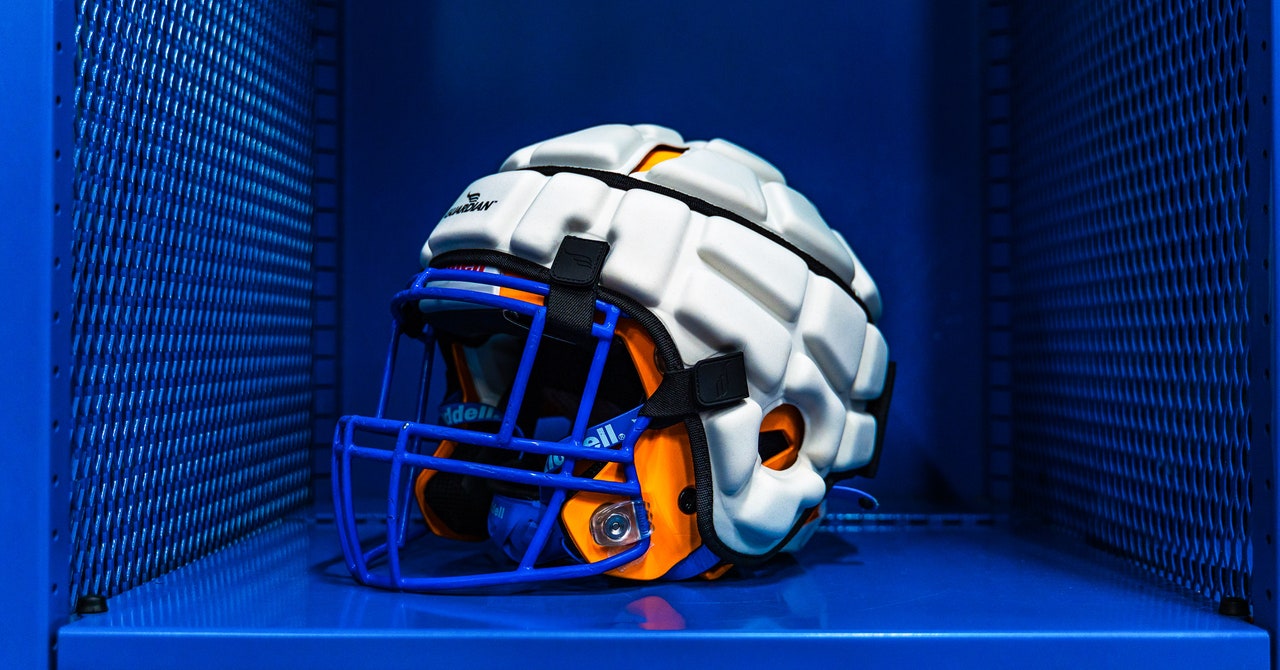Late in his team’s game against the Green Bay Packers on September 15, Indianapolis Colts tight end Kylen Granson caught a short pass over the middle of the field, charged forward, and lowered his body to brace for contact. The side of his helmet smacked the face mask of linebacker Quay Walker, and the back of it whacked the ground as Walker wrestled him down. Rising to his feet after the 9-yard gain, Granson tossed the football to an official and returned to the line of scrimmage for the next snap.
Aside from it being his first reception of the 2024 National Football League season, this otherwise ordinary play was only noteworthy because of what Granson was wearing at the time of the hit: a 12-ounce, foam-padded, protective helmet covering called a Guardian Cap.
Already mandatory for most positions at all NFL preseason practices, as well as regular-season and postseason practices with contact, these soft shells received another vote of confidence this year when the league greenlit them for optional game use, citing a roughly 50 percent drop in training camp concussions since their official 2022 debut. Through six weeks of action this fall, only 10 NFL players had actually taken the field with one on, according to a league spokesperson. But the decision was easy for Granson, who tried out his gameday Guardian Cap—itself covered by a 1-ounce pinnie with the Colts logo to simulate the design of the helmet underneath—in preseason games before committing to wear it for real.



FTA:
and
So it looks like they’ve already though through that. Not saying it’s impossible that a bad incident will be blamed on the Guardian, but it looks like they’ve done the necessary research.